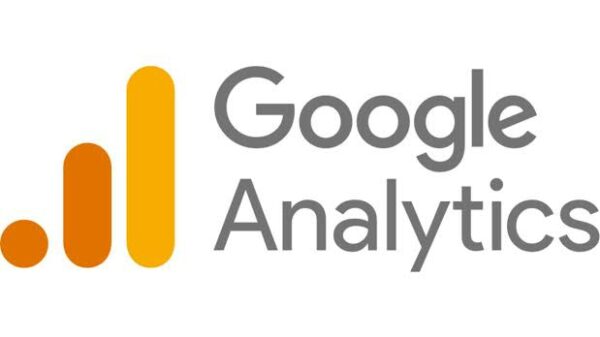When owning a website one thing you need to keep in mind is searchengine optimization, commonly referred to as SEO; it is what ensures that visitors are able to find your website when they type relevant keywords and phrases into a search engine. In an attempt to ensure that the websites appearing on the first few pages of search engine results were not full of spam and had actual content, Google released two crucial updates known as Panda and Penguin. If your website’s ratings took a large dip at the time these were released, it is essential to know which one affected you so that you are able to fix the problem and boost your rankings.

Understanding Google Panda
Panda’s goal was to reduce rankings for sites with low-quality content for users. This consists of websites with low-value for the users or with content copied from other sites. It also boosted sites with original and well-researched content. The most notorious websites hit by Panda were content farms that continuously published low-quality content stuffed with keywords. The update penalized the entire site, not just the subpages that had thin content. The original Panda update was released for English speaking countries on April 19th, 2011, and then it was updated on April 27th, 2011.
Understanding Google Penguin
Penguin was released for a different reason than Panda. It specifically targeted what Google deemed as webspam. Any sites that were suspected and found to be in violation of the quality guidelines established by Google experienced a drop in site rankings when the Penguin update rolled out. These tactics included keyword stuffing and placing irrelevant outgoing links in pages of content. Other factors that are suspected of contributing to a site’s drop in rankings as a result of the Penguin update include an overuse of exact-match domains and anchor text or low-quality article and blog spam. The Penguin update was released on April 24th, 2011.
Knowing Which One Affected your Site
It is necessary to know which update penalized you, because each update targeted a different issue. Unless you are an expert from an established Atlanta SEO firm, you may be wasting your time if you attempt to fix issues you believe were penalized by Penguin if you were hit by Panda and vice-versa. Analytics can help you determine which updates directly impacted your traffic. Go into Google Analytics and look at the reporting tool. Change the date range to April 1st through May 15th, 2011. Look at the graphs to see where the dips in traffic occurred. Keep in mind that Panda was implemented on April 19th and updated on the 27th, while Penguin debuted on April 24th.
You can also look at the keywords that were hit by changing the primary dimension in Analytics to keyword. Then set the date range. If, based on the first analysis, you feel you were hit by Penguin; you’ll want the date range to cover from April 24th to May 15th. If you were hit by Panda, select April 19th to May 15th. You will see the increase and decrease in popularity for each keyword now.
Google periodically releases updates to these algorithms, and it is possible for your site to experience a hit at any time. It’s important to be proactive and keep on top of the constant updates to ensure your site doesn’t get hit any harder than it already has from Google’s algorithm changes.
Molly Henshaw is a freelance writer living in the DC metro area, she is also a contributing author for the Atlanta SEO firm of Everspark Interactive. Let their experts take care of your site branding and exposure, so that you can focus on handling the increase in customers that comes with a successful interactive marketing campaign!

11 Comments
Leave a Reply
Cancel reply
Leave a Reply
This site uses Akismet to reduce spam. Learn how your comment data is processed.






















































































































































































Nawaz
September 4, 2012 at 2:15 am
I love Google Panda and Penguin update because these are the name of quality. First one is related to contents that are part of onsite optimization and second one is related to links. Contents should be original and links should not be spam.
Cristian Stan
September 4, 2012 at 10:35 am
Hi, Nawaz! Are you trying to say that your website is so great that it wasn’t negatively influenced by Google Panda and Google Penguin Updates? Man, you’re good!
Lakshmi Balu
September 4, 2012 at 1:31 pm
Loving Google Panda and penguin is irony!
Cristian Stan
September 7, 2012 at 8:58 am
:)) Yeah, you’re right. I’m slow :)) My bad!
Joseph Admin2
September 5, 2012 at 9:04 am
Hahaha
Joseph Admin2
September 5, 2012 at 9:03 am
Nice summary Nawaz. I couldn’t agree more.
Magic Webs
September 4, 2012 at 2:17 am
Great point! One should really determine which of the two algorithms hit one’s website. Because when one knows the problem, somehow, the answers that will come up will directly boil down to the root cause. The difference between Panda and Penguin are relevant to the site since it clearly states the weakness of the site and you can now think of better ideas to present the site in conformity of Google’s algorithm releases. I just adore Google’s way of helping the community provide fresh and reliable content.
Kamran
September 16, 2012 at 7:25 pm
Hi,
Great work you have done and cover a good information of Google panda on your blog, it really work for ever blog and save there website from Google panda hit. keep it up and share more.
Thank
Kamran
Pingback: How To: Avoid Penalties from the SEO Animals
Smith
December 15, 2012 at 3:48 pm
I fear these two most! They are really dangerous! Thanks to identify some points. I think actual knowing about these and bewaring will help to protect oneself.
Yasir Khan
May 24, 2013 at 2:14 am
These two updates really make a huge bang on the SEO world as both were implemented unexpectedly. Even the reliable site were affected by the recent change. So, it is always important to practice legal ways of doing SEo to avoid problems.